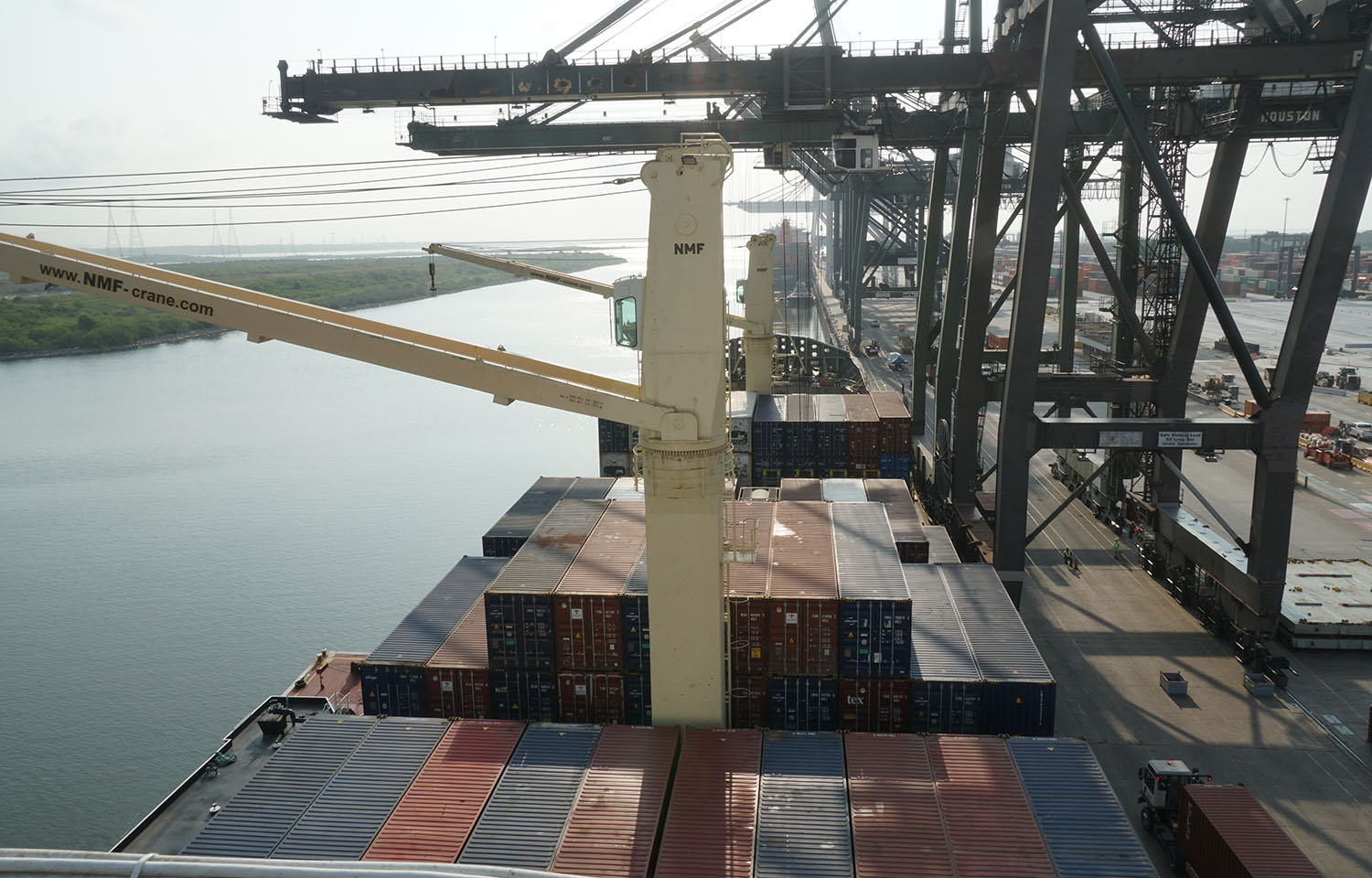Danger of strikes in ports, rising imports and ongoing global challenges are impacting the shipping market

Ongoing disruptions in global shipping traffic, fluctuating demand, port strikes and price increases combine to create a volatile environment for global shipping.
CNBC reported that freight rates are rising and there are fears that ocean freight prices could reach as high as $20,000 (€18,550) in 2025. Paul Brashier, vice president of logistics at ITS, told the media outlet that limited vessel capacity has forced shippers to turn to the spot market, driving up prices.
According to CNBC, prices have risen 36 to 41 percent since mid-June compared to the previous month, and shipping companies have increased their general rates by as much as 140 percent.
According to CNBC, bottlenecks at port terminals are also leading to an increase – although the data also indicates that container bookings fell 48 percent in June compared to May.
DHL reportedly warned that congestion continues at key Southeast Asian and Chinese ports, with ships in Singapore waiting an average of seven days to enter port.
The shortages could worsen as the International Longshoremen’s Association (ILA) continues to negotiate its collective bargaining agreement. The association represents longshoremen at ports on the East Coast and Gulf Coast of the United States. Given the lack of progress in collective bargaining, the risk of a strike is increasing, according to CNBC.
At the centre of the labour dispute are companies such as Maersk, which are increasing the automation of certain port functions and thus violating the union’s collective agreement.
“Here we go again! This is another example of members of the USMX (US Maritime Alliance) unilaterally circumventing our coast-wide framework agreement. This is a clear violation of our agreement with the USMX and we will no longer tolerate it,” the ILA said in a press release.
As fears grow that a lack of agreement could lead to a strike, some shipping lines are reportedly sending their ships to the West Coast to avoid the risks, but this shift could cause delays at West Coast ports.
The overall volatility is due to continued rising prices. The Shanghai Containerized Freight Index rose to USD 3,714 (EUR 3,445) on June 28 – a level not seen since the Covid-19 pandemic.
One reason for the cost increases is the attacks by the Yemen-based Houthi militia on shipping companies in the Red Sea. Experts predicted at the beginning of the year that these attacks would pose a problem for shipping companies throughout 2024.
DHL warned that the longer routes shipping companies would have to take to avoid the Red Sea would result in more containers remaining at sea for longer – which in turn would result in a shortage of available freight containers.
Despite the higher costs and problems, a survey conducted by data firm Container xChange on its platform found that while vessel dealers and leasing companies in the U.S. face strong competition, there are no significant hurdles in liquidating inventory.
“This is a positive sign for the container logistics market in the US, despite the greater global uncertainties and challenges,” the company said.
Trade data for May 2024 show that the U.S. imported 6.2 percent more goods than in April and 11.9 percent more goods than in the same month in 2023.
“Although the market is showing positive signs, operational challenges such as port congestion, labor shortages and logistical bottlenecks continue to pose risks. These issues can lead to delays and increase costs for traders,” said Christian Roeloffs, co-founder and CEO of Container xChange.
The Texas Gulf Coast also reported strong container throughput in May despite unemployment concerns. The Port of Houston, Texas, reported a 21 percent increase in 20-foot container throughput compared to a year ago, FreightWaves reported.
“Compared to 2023, our business in May continues to be very strong,” said Roger Guenther, general manager of the Port of Houston, during a monthly commission meeting.



